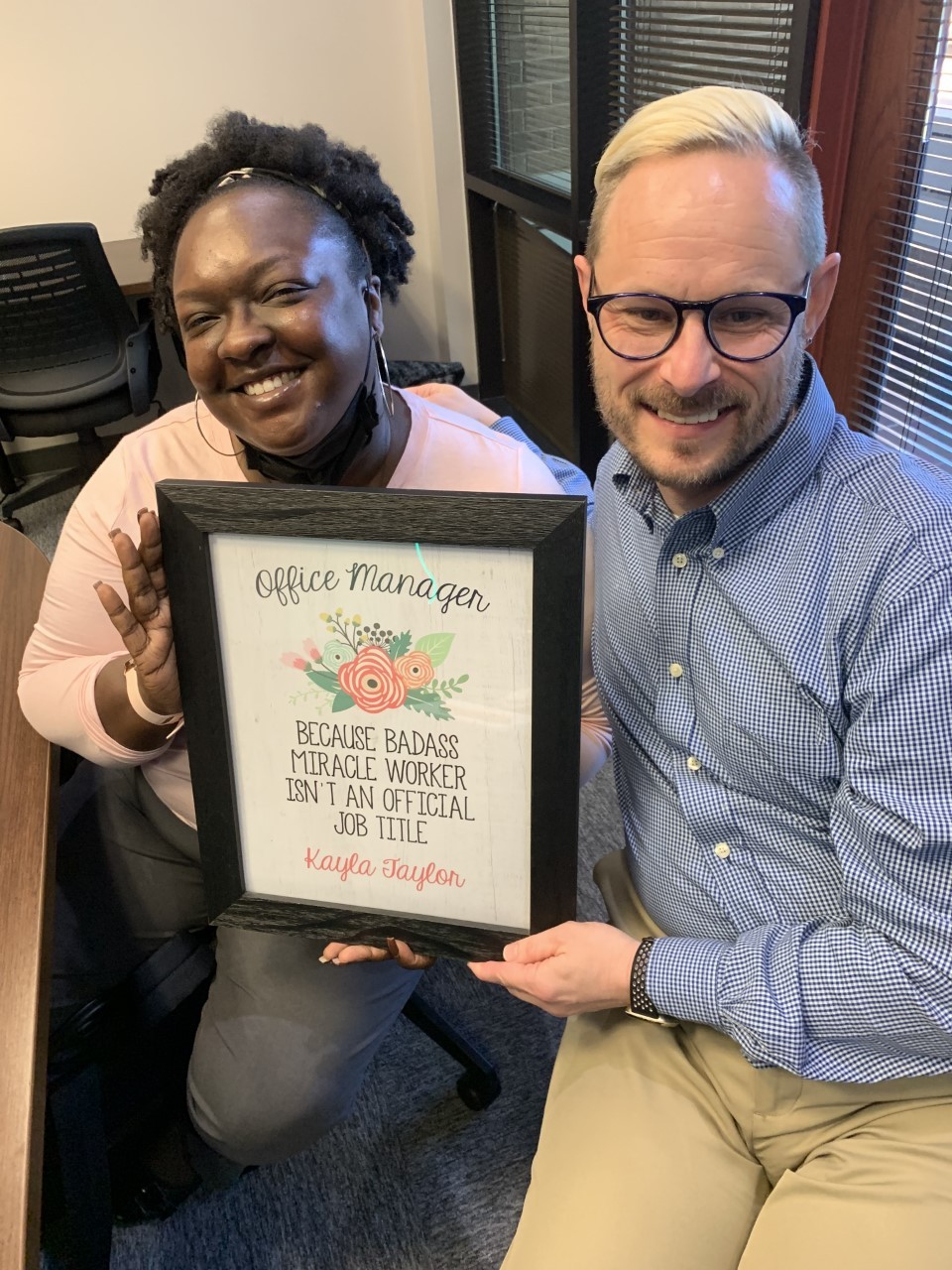Alright – so today we’ve got the honor of introducing you to MATTHEW ESTEY. We think you’ll enjoy our conversation, we’ve shared it below.
MATTHEW, appreciate you joining us today. We’d love to hear about how you went about setting up your own practice and if you have any advice for professionals who might be considering starting their own?
I have worked in the helping professions since 2003 including: therapeutic wilderness programs, residential treatment centers, inpatient hospitals, community integration programs, and PACT teams (Program of Assertive Community Treatment). While I had thoughts on and off about starting a program of my own, I had the good fortune to be part of organizations with strong cultures and advancement opportunities. Both my husband and I were in great professional spots until January of 2021. At that point, life threw us a bit of a curveball and he started the process of job searching. About one month into his job search, it occurred to me that this ‘crisis’ was actually an opportunity for us to do something quite adventurous and start a business together.
There were a number of challenges to starting our new business, the most important one being that neither of us had ever done something quite like that before and that we wanted to self finance. I had started a similar program for the Menninger Clinic in 2017, called Menninger 360, so felt comfortable with setting up the clinical team, but I had little context for all of the operational needs we had, which is where my husband would come in with 15 years of healthcare experience in the business office. For financing, we decided to go all in, cash out all of our savings, retirement, and sell our house. This continues to feel a little scary but, both of us have a strong work ethic and decided the reward was worth the risk.
Starting this business seems quite obvious to me at this point but if someone had asked two years ago if I would be in Austin running a PACT team I would’ve been quite dubious. All of my professional experiences have led me to this point and I can clearly see how all of those years of learning, growth, and struggle have equipped us to make a go of this. I would encourage people to explore their personal and professional values, make decisions based on those values, continue to learn and grow, and take risks. The worst case scenario isn’t failure.



MATTHEW, before we move on to more of these sorts of questions, can you take some time to bring our readers up to speed on you and what you do?
The current system of mental healthcare is broken. When people struggle, they are often faced with the choice of living with their families/communities or going away to treatment. Alternatively, people cobble together an outpatient team of helpers, e.g. psychiatry, individual therapy, family therapy etc… and might think they have a team of people helping them but this is inaccurate. Those helping professionals work individually so their ability to actively collaborate is limited and this increases the chance of a poor therapeutic outcome for people in crisis.
What sets The Mind-Body Collaborative apart from 99.99% of outpatient, residential, or inpatient treatment is the following:
1) We have an interdisciplinary team including: psychiatrists, nursing, dietician, master’s level clinicians, peer specialists — these team members consult and meet every day and office together.
2) Our team is mobile so we work with people in the context of their lives: work, school, community.
3) We have a staff person on call 24/7 so if there is an emergency, there is a number to call other than 911.
4) We believe in systems which means we engage families actively, providing support and treatment to the whole family system to leverage change.
5) All of our services are provided 1:1 so our treatment plans are 100% individualized.
6) Mental health is a multifactorial outcome so we are constantly assessing and engaging our clients in diverse domains: social engagement, sleep, nutrition, physical activity, medication management, talk therapies.
I am most proud of our team at TMBC.



Training and knowledge matter of course, but beyond that what do you think matters most in terms of succeeding in your field?
Collaboration is critical to the work I do. When I look back over my career, I recognize I had the opportunity to work on a diverse group of teams, made up of people with different backgrounds, specialties, and training. I learned so much from so many people, directly or indirectly. Sometimes people taught me what to do, sometimes they taught me what not to do. I also realized that what works for some people with clients and colleagues, won’t work for me so I had the opportunity to learn about who I am, my values, strengths, vulnerabilities, passions, and personality characteristics that, when harnessed and directed, would allow me to optimize my journey.
Do you think you’d choose a different profession or specialty if you were starting now?
It is hard for me to imagine a career that would allow me to show up more authentically than working at The Mind-Body Collaborative. I get to do something I have aptitude for, it also happens to be something I am very interested in, engages my core values (kindness and curiosity/playfulness), and works quite well with my personality ENFP). I had no idea where my journey would lead me when I started on this path in 2003. It took me almost 6 years to recognize that working in the helping profession could actually be what I would do and 15 years to find what I consider to be the perfect professional fit running a PACT team.
Contact Info:
- Website: https://atx-themindbodycollaborative.com/
- Linkedin: https://www.linkedin.com/feed/


